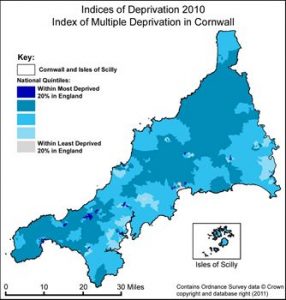 Reading Julia Rampen’s “11 things I feel more sorry about than Cornwall losing money after Brexit” in the New Statesman, I agree with all the groups she cites who are going to suffer the effects of Brexit, but did not vote for it.
Reading Julia Rampen’s “11 things I feel more sorry about than Cornwall losing money after Brexit” in the New Statesman, I agree with all the groups she cites who are going to suffer the effects of Brexit, but did not vote for it.
However, it is clear that, when considering Cornwall, which voted 56.5% to leave, where affluent second home owners and retirees are cheek-by-jowl with post-industrial poverty and decay, and which is now worried about the loss of regional funding; Rampen’s sympathy is, to say the least, muted.
This made me ponder other groups for whom I have little sympathy as we face the uncertainty, and quite likely utter disaster, of Brexit.
- those, like myself, academics, professionals, who have reaped the benefits of open markets and labour, but ignored the plight of those who have suffered because of it
- those who have accepted the narrative that those who suffered most were in some way to blame
- the newspapers that lampooned and vilified Gordon Brown for his overheard private comment about a “bigoted woman“, but now happy to label leave voters who hold similar views as racist.
- those that passively accepted the implicit racism of the leadership debates in the 2010 general election without comment
- those who have accepted EU rules as an excuse for government inaction … such as happened with Port Talbot steel just before the referendum election
- the governments and administrations of multiple hues over many years, who have applied EU regulations in ways that no other country would regard as reasonable
Some of these ‘unwilling vicitims’ will suffer from Brexit despite voting to remain. However, many of those who will suffer worst will have voted to leave, but only because remaining in offered them no hope either.
After a generation of closing our hearts to those suffering on our doorstep, we now demonise them yet again.